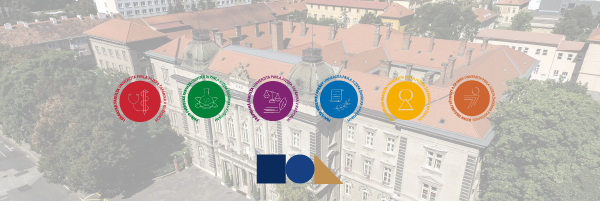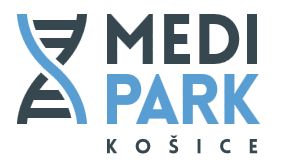In accordance with Rector’s Decision no. 9/2017 on securing the internal quality of education system at the Pavol Jozef Šafárik University in Košice (UPJŠ), in the first month of the winter semester (usually September – mid October) an anonymous questionnaire survey of students’ satisfaction with the teaching process at the UPJŠ is performed. Students can respond to questions about studying at the university, access to information, the environment, assessment out-of-courses options, or to give any of their own suggestions.
The objectives of organized feedback are:
- to identify and analyse students’ views on university teaching and identify positive responses as well as bottlenecks in the learning process,
- to discuss problematic areas with the university departments concerned;
- to take measures to remedy the identified deficiencies.
The students were offered 37 questions, which were divided into 5 sections:
- organization of the teaching process,
- information about the events at the faculty and teaching conditions,
- work environment,
- educational environment and educational support,
- support of extracurricular activities at the university.
Students responded by selecting an answer from the given options, and at the end, they had the opportunity to contribute their own ideas and insights that could contribute to increasing their satisfaction. Each student was able to fill in the questionnaire electronically (in AiS2) or use the printed version and submit it into the prepared boxes that were in the lobbies of university buildings.
The results from the analysis of this pilot survey will be used to improve the learning process and are a good example for other students to participate in the survey in the future, contributing to making student satisfaction data at the university more objective.
The questionnaire in the academic year 2016/2017 was completed after the academic year-end in September/October 2017 by a total of 54 students in English study program (Faculty of Medicine). Everyone involved in the survey thanked you for your willingness and patience in answering to questions, as well as suggestions and notices. Despite the fact that not a large number of university students have taken part in the survey, all statements and opinions are very valuable to the University leadership, since they contribute to improving the learning process and foster a creative work environment.
Half of the students who responded anonymously were male and half female, mostly from the Faculty of Medicine. When evaluating satisfaction, the possible answers were “very satisfied, “satisfied”, “dissatisfied” and “very dissatisfied” to simplify the analysis. Most students completed the printed form of the questionnaire.
1. Organization of the teaching process
Up to 70% of students answered that the timetables of lectures/workshops and seminars were adhered to and think that their content schedule has been respected. Most of the students agree that they were informed about the learning objectives, contents and conditions of completion of the subject at the beginning of the course. Teachers’ motivating approach was also positively evaluated. Mostly of students think that their performance assessment was objective, but more than 38 % of students do not know that a study adviser exists, too.
2. Information about events and studying conditions
The students were aware of activities at the faculty as well as the opportunities for internships (e,g. Erasmus). They gained most information from the web, AiS2 and social networks. Up to 85 % of students said they did not take part in the election of student representatives to AS. Although most students are satisfied with the availability of the study literature, but about 15 % of the students answered that the availability of the current study literature is inadequate. Up to 50 % of students think that modern teaching technology is used only partially or not used at all. The students (40 %) said they were inadequately informed about the possibilities of supporting students with special needs.
3. Work environment
More than 75 % of the students who participated in the survey are satisfied with the material provision of the learning process (e.g. technical equipment of lecture rooms, practical rooms), but more than half were not satisfied with the faculty premises (e.g. buildings, rooms, social facilities, meals). Only about 30 % of the students were satisfied with the provided accommodation. Communication with support staff (e.g. study department, library) was rated as excellent/very good by more than 60 % of the students. Even though almost 75 % of the students assess the atmosphere at faculty as friendly and motivating, more than 80 % of the students would welcome the opportunity to use mediator services to deal with conflicts and misunderstandings.
4. Educational environment and education support
The students assessed the educational environment in which they are as well-equipped or very well equipped (professionally and technically). In terms of e-learning, most students have engaged with e-books, eTextbooks and electronic teaching materials. Almost all of students use e-learning and 50 % of them use it at least once a week or daily. Students mostly use webpages/e-materials and the thematic faculty portals. They do not use AiS2. Students would like to learn more about these forms of study via training and on-site consultation.
5. Support of the extracurricular activities
Most students (over 50 %) state that they did not have the opportunity to be actively involved in the creation of timetables, but more than half of them found that their schedule allowed them to take part in extracurricular activities. Half of the students do not participate in extracurricular events organized at the university/faculty and almost 50% of students think they have not been able to actively participate in planning, making of decisions, development of a study field at faculty.
Conclusions and proposed measures
- Improve the electronic version of the questionnaire in AiS2 to match the current trends and capabilities and simplify and shorten the implementation process.
- In cooperation with faculty management, seek solutions to students’ passive approach by improving the work of study counsellors.
- Continue to expand the support of students’ professional activities (e.g. SSW).
- Improve collaboration with student associations/organizations to contribute to motivating students to engage actively in the learning process.
- Continue in the established trend of e-learning support, including more training/on-site consultation.
- Create conditions under UNIPOC for the possibility of using the mediator to solve problems.
Complete: https://ais2.upjs.sk/ais/start.do













